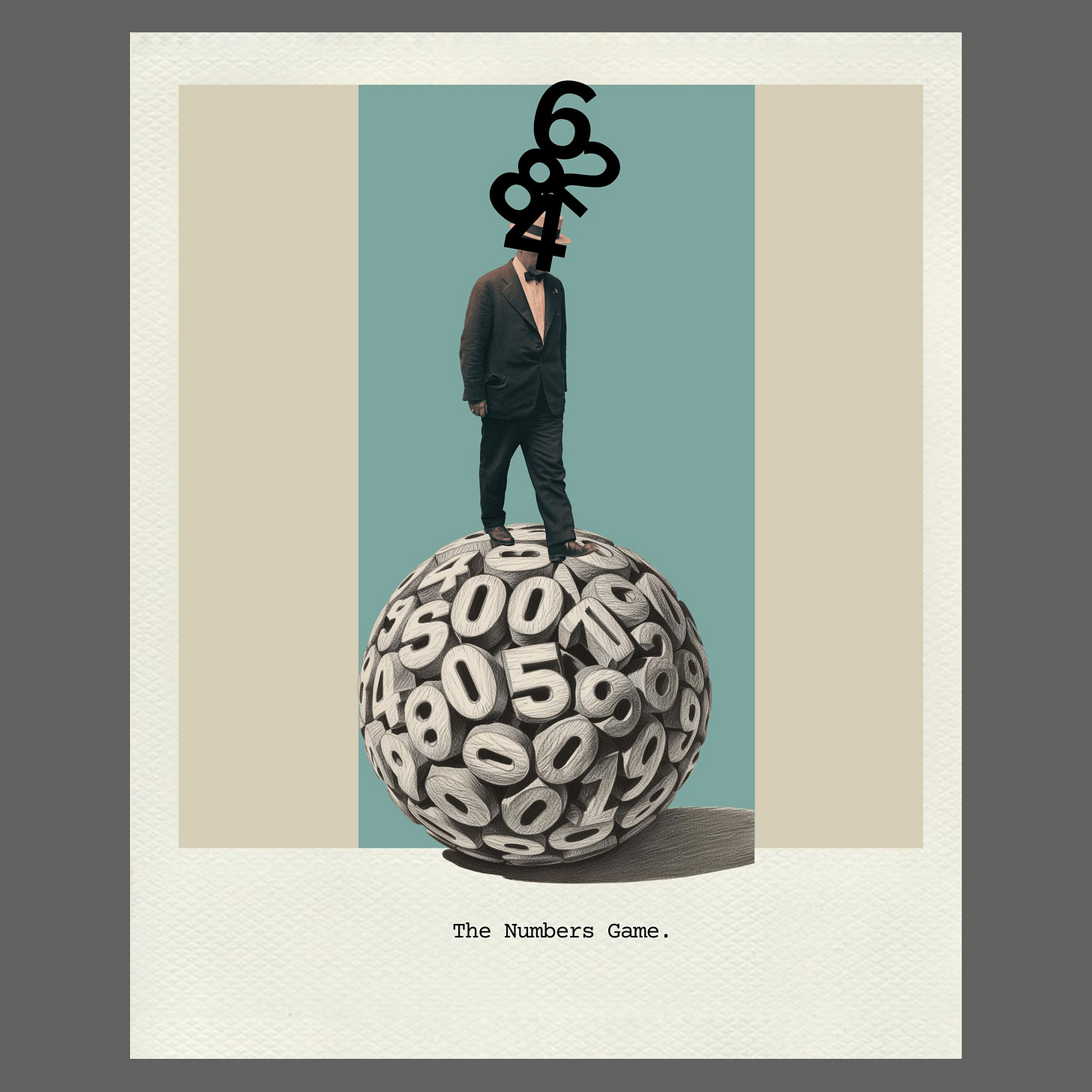The Numbers Game

Numbers are absolute, but they are also relative. Ten is bigger than two, but two is better than ten in a countdown of the top pop songs of the decade. My wife is genuinely interested in numbers in their absolute context and symbolic meaning. For me, numbers are a convenient quantifier of both performance and hierarchy.
On a recent Uber ride, I was chatting with my driver, Abdul. He had a compelling story of his immigration experience and the adaptation of his family to life in Canada. I also congratulated him on his 5.0/5.0 rating and the many complimentary things that had been written about him on the Uber app. As we discussed what it meant to have a top rating, he mentioned casually that Uber drivers also rate their customers. This came as a surprise to me and an unsettling one when I checked my score on the app. I’m ranked at 4.88.
This triggered a competitive drive to do better. Uber offered on its app an explanation that seemed tailored in an anticipatory way to my distress: “Very few people have a perfect rating, so don’t despair if your average isn’t 5.0. Things that may seem small to you can matter to your driver—it’s easy to slam a door if you’re not thinking about it. Knowing a little more about the things that affect a driver’s happiness can help you be a 5-star rider.” Examples of 5-star behaviour include making sure the location entered as your pick up point is where you will be, being courteous, and wearing your seatbelt.
Sure, those are good general tips, but they didn’t tell me what would factor into Abdul’s calculus. So I asked him directly what it would take for him to give me a perfect 5.0. He laughed and told me not to worry about it, unaware of the competitive drive that energizes me toward a series of incredibly minor victories (number of errands completed in 30 minutes, number of successive green lights in a crosstown drive, and other hallmarks of a meaningful life well lived).
I reflected on past Uber rides. While courtesy toward and curiosity about my drivers were not problems for me, I realized it was highly possible that in my haste and sometimes brusque physical style, I may have well slammed some doors shut on exiting from the rear of the car. In fairness, I have slammed my own car door thousands of times without affecting my self-rating. It must have taken me 15 seconds to close Abdul’s door—like a safecracker listening as each individual tumbler fell into place.
I mentioned this important personal news to my wife, who seemed remarkably disinterested in the topic; at one point the only audible sound was the upward ratcheting of her eyeballs. She didn’t actually utter the word pathetic, but I sensed it in her non-verbal communication.
This preoccupation was offset by some positive numbers news. The squash pro at my club, watching my 71-year-old partner and me play, said that based on our playing level and scores in house league tournaments, we were probably both ranked nationally for our age category. I was unaware of the existence of national rankings, but the Squash Canada website captured the results of official league matches to rank us to the second decimal point.
In the preceding 70 years, I had never been on a published list of athletes. Once my initial excitement (okay, it verged on delirious joy and an urge to tell everyone) about being on a national roster of the top 50 men's 70-plus singles squash players subsided, I reminded myself of some sobering facts: many players my age had already switched to doubles, others had quit entirely due to bad knees or other injuries, and some, rather definitively, were no longer with us.
This sombre realization dulled some of the initial frisson, so then I chose to massage the data a little more. If I restricted the list to people living in Ontario, my ranking improved. If I limited the list to likely Jewish surnames, I did even better. I have long been on a quixotic quest to improve my game, but this new yardstick galvanized me to move forward, like a horse with a carrot dangling in front of him on a stick.
What drives this? Is it temperament or a gendered thing? When my wife and I were medical students, already married, she sometimes played basketball with other female classmates. When she came home afterward, she often told me that she had a great time. I would ask who won, and she wasn’t sure. This was always a moment of head-exploding cognitive dissonance for me.
As for temperament, my report cards from elementary school revealed not only enduring traits but also the perceptive skills of my teachers. In Grade Four, just over sixty years ago, my teacher wrote:
“He is happy, eager, and enthusiastic but becomes upset when he finds that others can do as well as he does or even a little better at times. Assistance in the form of encouragement has helped him…David is active and enthusiastic in his work. He is still very sensitive about his own academic achievement as compared with that of his classmates. With help, he has realized that his work is not properly evaluated by such comparisons, and he has been more relaxed about it.”
Not quite as relaxed as she thought—or maybe the help she gave me back then has simply worn off.




My Uber score is 4.88 too. This type of thing in our family takes years of therapy to resolve. 😲
"Comparison is the thief of joy," said someone somewhere. But I think this witty essay about your relentlessly competitive spirit will give lots of readers joy. I'm going to check my Uber score right now.